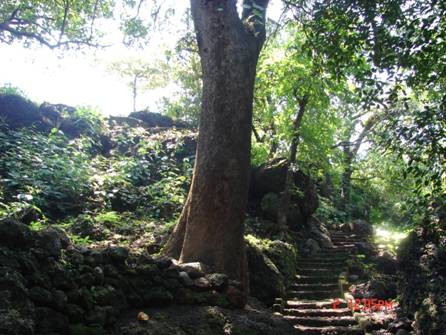Society, Culture, Religion and History
Water and its quality in ancient encyclopedias of Karnataka - Paper presented at the National Seminar on Water and Culture (2007)
Posted on 30 Jan, 2011 06:40 PMThe author looks at three ancient Kannada and Sanskrit texts - Lokoparam, Manasollasa, Shivatattvaratnakara. All these texts were written between the 12th and 18th century. These texts record hydrological data ranging from cloud formation to traditional methods of preserving potable water.
Traditional water management practices and water sector reforms in South India - A comparative analysis of three systems and Participatory Irrigation Management policy - Paper presented at the National Seminar on Water and Culture (2007)
Posted on 30 Jan, 2011 06:13 PMThe authors study three tanks; one each in Karnataka, Andhra Pradesh and Kerala and find that almost all tanks in Southern India face similar problems that include farmers in command area being deprived of water, siltation, lack of proper maintenance of such structures, lack of political will to decentralise authority to tank institutions etc.
Traditional water management practices in coastal Karnataka - Paper presented at the National Seminar on Water and Culture (2007)
Posted on 30 Jan, 2011 04:10 PMTh paper begins with a brief history of the region of Southern Kanada, its geography and the religious practices of the region. Some of the key features of this region includes an abundance of rivers though they mostly are rain-fed.
Glimpses of the historical water bodies in the Vijaynagar dynasty - Paper presented at the National Seminar on Water and Culture (2007)
Posted on 30 Jan, 2011 03:44 AMThis paper uses secondary data to showcase the water bodies that were built in the Vijayanagar Empire. The author states that there were 88 such water bodies and these were used for irrigation purposes and also for consumption.
Eradication of manual scavenging - Recent PIB Releases
Posted on 28 Jan, 2011 04:17 PM The Union Minister of Social Justice & Empowerment Shri Mukul Wasnik recently inaugurated the two-day Consultation Meeting on Eradication of Manual Scavenging and Rehabilitation of Manual Scavengers.Speaking on the occasion, he called upon the States to work towards eradicating the shameful practice of manual scavenging by the end of the 11th plan. He regretted that despite various efforts made by the Central Government and the States, the practice of manual scavenging still exist in some parts of the country. The meeting was organized by the Ministries of Social Justice & Empowerment, Urban Poverty Alleviation and Urban Development.
Shri Wasnik said that we must address rehabilitation of manual scavengers to our utmost capacity.
Using media to address water issue in Rajasthan - Video Volunteers
Posted on 28 Jan, 2011 12:00 PMDuring her yearlong stay, Tara trained at least twenty people into video production some of whom have succeeded in finding work in the local market as photographers, cameramen and wedding video makers. In this blog she gives a vivid account of the CVU, its producers and their work.
Sustainable water management initiatives in Konkan under threat - A report
Posted on 21 Jan, 2011 02:09 PMGuest Post by: Parineeta Dandekar
At the first sight, Daarche Paani (‘water at the doors’) appears unreal.. on a small flat plateau called ‘Sadaa’ in konkan, an elegant cobbled walkway leads a puzzled visitor to stairs carved in stone, which go down to an ancient grove, and here is an intricate system of tanks, channels and falls which supplies water to the Panderi village and goes down as a free flowing stream, to irrigate a plantation of arecanut, pepper and mangoes in a village called Gudaghe. When I visited the place, I could see three eminent visitors, a silent lady washing her load of clothes, a fairy bluebird splashing at a tank and a huge moonmoth in one of the trees.
 Stone walkway and ancient mango trees leading to Daarche Paani.
Stone walkway and ancient mango trees leading to Daarche Paani.
Photo: Parineeta Dandekar
Briscoe on the Indus treaty - A response from Ramaswamy Iyer - Economic and Political Weekly
Posted on 21 Jan, 2011 09:11 AMThis paper published in the Economic and Political Weekly, provides a critique of the writings by John Briscoe on the implementation of the Indus Waters Treaty and argues that it is a biased and a one sided presentation of issues, which ridicules and ignores the attempts made by India at negotiating with Pakistan and reaching a peaceful agreement over the water issue.
24th national convention of IPHE (India) on "Water & sanitation utility services in India and their health implications" held in Bhubaneshwar
Posted on 18 Jan, 2011 11:49 PMThe 24th National Convention of Institution of Public Health Engineers (India) on the theme “Water & Sanitation Utility Services in India and their health implications” will be organised by IPHE(I), Regional Centre, Bhubaneswar during 12th -13th February,2011.





